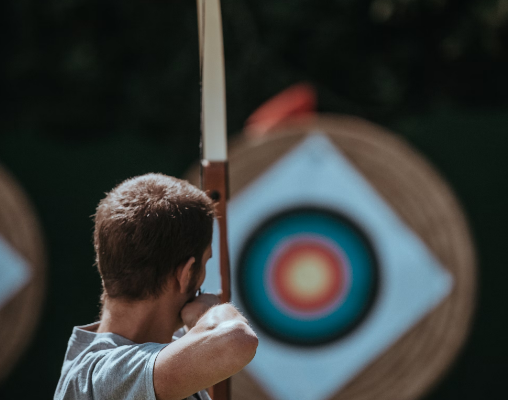Coaching in sports transcends the role of instructing athletes on technique and strategy; it embodies a profound art form that combines mentorship, leadership, and inspiration. Coaches play a pivotal role in shaping athletes’ physical skills, mental fortitude, and personal growth, fostering a culture of teamwork, discipline, and excellence. This guide delves into the intricate dynamics of coaching, highlighting the essence of mentorship, the qualities of effective leadership, and the transformative impact coaches have on athletes and teams within the realm of sports.
- The Role of Mentorship in Coaching
Mentorship lies at the heart of coaching, encompassing guidance, support, and personal development for athletes beyond the realm of sports. Coaches serve as mentors who nurture athletes’ talents, instill core values, and impart life skills that transcend athletic achievements. Through mentorship, coaches cultivate trust, build meaningful relationships, and empower athletes to reach their full potential both on and off the field. Mentorship in coaching fosters a sense of accountability, resilience, and self-confidence that enables athletes to navigate challenges, overcome setbacks, and achieve long-term success in sports and in life.
- Leadership Qualities in Coaching
Effective coaching hinges on exemplary leadership qualities that inspire, motivate, and empower athletes to excel. Leadership in coaching encompasses vision, communication, empathy, and integrity, creating a cohesive team culture centered on shared goals and values. Coaches lead by example, demonstrating dedication, perseverance, and a commitment to continuous improvement that motivates athletes to elevate their performance and strive for excellence. Strong leadership in coaching promotes inclusivity, fosters a positive learning environment, and cultivates a sense of belonging and unity among athletes, coaches, and support staff.
- Building Trust and Communication
Trust and communication are fundamental pillars of successful coaching relationships that underpin athlete development and team cohesion. Coaches establish trust by demonstrating competence, consistency, and genuine care for athletes’ well-being and growth. Open and effective communication fosters transparency, clarity, and mutual understanding between coaches and athletes, facilitating constructive feedback, goal setting, and problem-solving strategies that enhance performance and optimize team dynamics. Building trust and communication in coaching empowers athletes to embrace challenges, embrace feedback, and cultivate resilience in pursuit of shared goals and aspirations.
- Personalized Coaching Approaches
Coaching is a personalized journey that acknowledges the unique strengths, motivations, and aspirations of each athlete. Coaches tailor coaching approaches, training programs, and performance strategies to accommodate individual learning styles, skill levels, and developmental needs, promoting personalized growth and maximizing potential. Personalized coaching fosters adaptive learning, skill refinement, and self-discovery, empowering athletes to unlock their talents, overcome obstacles, and achieve peak performance in competitive sports settings. By embracing personalized coaching approaches, coaches nurture a culture of inclusivity, celebrate diversity, and cultivate a supportive environment that enables every athlete to thrive and succeed.
- Emotional Intelligence and Resilience
Emotional intelligence and resilience are essential competencies that distinguish exceptional coaches in sports. Coaches with high emotional intelligence demonstrate empathy, self-awareness, and social skills that promote positive interactions, conflict resolution, and emotional support for athletes facing adversity or performance challenges. Resilient coaches model perseverance, optimism, and adaptability in navigating setbacks, setbacks, and adversity, inspiring athletes to embrace challenges, learn from setbacks, and grow stronger mentally and emotionally in pursuit of athletic excellence and personal fulfillment.
- Continuous Learning and Professional Development
Coaching is a dynamic profession that demands continuous learning, professional development, and innovation to stay current with evolving sports trends, advancements in sports science, and coaching methodologies. Coaches pursue ongoing education, attend coaching clinics, and collaborate with sports experts to enhance coaching knowledge, acquire new skills, and implement best practices that optimize athlete performance and team success. Continuous learning in coaching fosters a growth mindset, cultivates curiosity, and stimulates creativity, enabling coaches to innovate, adapt strategies, and empower athletes to achieve sustained success in competitive sports environments.
- Ethical Considerations and Impact
Coaching ethics and ethical considerations are paramount in promoting integrity, fairness, and respect within sports. Coaches uphold ethical standards, abide by rules and regulations, and prioritize the well-being and safety of athletes in all coaching interactions and decisions. Ethical coaching practices promote sportsmanship, fair play, and respect for opponents, instilling values of integrity and accountability that shape athletes’ character, conduct, and reputation on and off the field. By embracing ethical considerations, coaches inspire athletes to embody values of sportsmanship, uphold ethical principles, and make positive contributions to their teams, communities, and the broader sports landscape.
Conclusion
The art of coaching encompasses mentorship, leadership, and personal development, shaping athletes’ physical abilities, mental resilience, and lifelong skills in sports and beyond. By embodying mentorship principles, cultivating effective leadership qualities, and fostering trust, communication, and ethical integrity, coaches empower athletes to achieve their full potential, thrive in competitive sports environments, and navigate life’s challenges with resilience, integrity, and purpose. As stewards of athletic excellence and personal growth, coaches play an indispensable role in shaping the future generation of athletes, fostering a culture of sportsmanship, inclusivity, and excellence that enriches the global sporting community.





